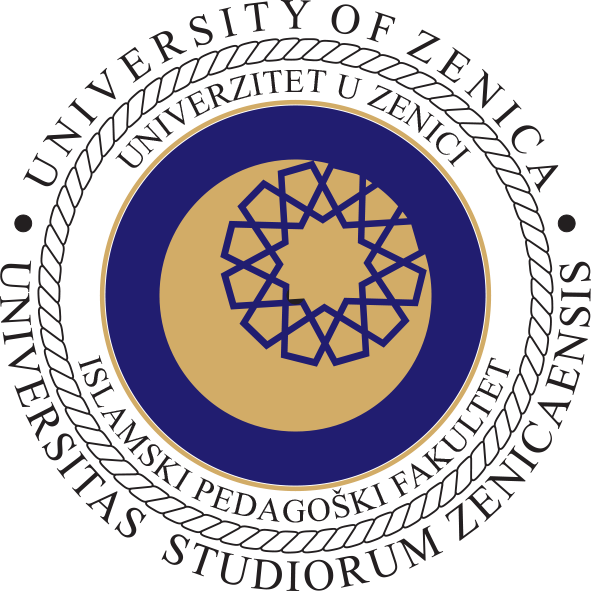O UČENJU I TRAJNOSTI ARAPSKOG JEZIKA U PROSVJEĆIVANJU NARODA BOSNE I HERCEGOVINE
Njegovati kulturu sjećanja i ukazivati na važnost očuvanja tradicijskih vrijednosti koje baštinimo i koje nas u svakom smislu određuju, univerzalni su zadaci svake društvene zajednice, posebno njezinog obrazovnog sistema. Stoga je cilj ovog rada da u sažetoj formi i kroz prizmu viševjekovnog prisustva i kontinuirane upotrebe ar...
By Mejra Softić
O FUNKCIJAMA ’ALIFA U ARAPSKOM JEZIKU (AL-’ALIF AL-LAYYINA – FLEKSIBILNI ’ALIF) ON
Classical Arabic philologists analyzed alif more than any other letter. In their works alif was analyzed in the context of its original function, as a sign for consonant hamza, but also as a long vowel sign, which lead to numerous studies and discussions. Given the fact that most of them focused on the analysis of alif as a sign for consonant hamza...
By Mejra Softić
Elements of the foundation of foreign language teaching policies in bih (culture and cultural diversity)
Bosnia and Herzegovina is a multiethnic and multicultural society in which, traditionally, there is a high degree of sensitivity to the need to respect, promote, get to know, connect and preserve different cultures. This paper primarily tries to point to the multifaceted cultural identity of BiH and the fact that cultural, traditional and religious...
By Mejra Softić
SENTENCE IN THE ARABIC LANGUAGE- SOME REMARKS ON CRITERIA OF MODERN DIVISIONS AND CLASSIFICATIONS
Modern syntactical researches conducted by Arabs are under great influence of traditional grammar. That as a consequence has various methodological approaches to interpretation of a sentence, its definitions and classifications. Even though some classical Arabic grammarians make semantic distinction between terms ğumla and kelam, today they are per...
By Mejra Softić
ZANIMLJIV TEKST U POGODNOM TRENUTKU
Prikaz djela: Mehmed Kico, Ogledi u poetici prevođenja – u svjetlu iskustava o arapskome jeziku (El-Kalem – Fakultet islamskih nauka u Sarajevu, Sarajevo, 2009)...
By Mejra Softić
CHARACTERISTICS OF ARABIC LEXICOLOGICAL RESEARCH – HISTORICAL PERSPECTIVE AND MODERN ARABIC LANGUAGE
Traditionally, lexicography and lexicology are considered to be the most developed disciplines in Arabic linguistics. During pre-Islamic period, Arabs were very concerned the the protection of the original Arabic vocabulary, and in the first centuries of an Islam expansion, the vocabulary of the literary arabic language was collected and compiled...
By Mejra Softić
SYNTAX CHARACTERISTICS OF THE PREDICATE NOUN WORD IN THE ARABIC ALPHABET
As a basic element of grammatical predicate category, the nominal sentence predicate in literary arabic language is specified by important structural, morphological and syntactict features. These faetures result from traditional rules deep rooted in arabic syntax, according to them the arabic grammarians in their general sentence classification int...
By Mejra Softić
Articulation-acustical and orthographycal separated hamza features in arabic grammarians interpretation
Bearing in mind last efforts of Arabian linguists directed towards numerous studies and papers for the purpose of a more correct understanding of linguistic uniqueness of the hamza consonant, especially on phonetically- phonological and orthographical level of words, as well as disagreement among modern and classical grammarians concerning evaluat...
By Mejra Softić
Characteristics of connecting hamza-wasla interpretations at the morphological word
Connecting hamza-wasla is defined as a special type of a bound grammatical morpheme. Its primary function is conditioned by phonetically-phonological rules and is manifested through facilitating the pronunciation of a certain word when, to a certain extent, it has some function in formally-grammatical changes but not in the creating a new meaning. ...
By Mejra Softić
Verbal values of arabic deverbal nouns
The possibility to be realized verbal functions using some defined verbal nouns is considered to be specific morphological and sintax appearance in arabic language. All deverbal nouns – infinitives, participles, adjectives and noun of preeminence – have, in some different degree, functions like that. The participles are separated as nouns by the mo...
By Mejra Softić
